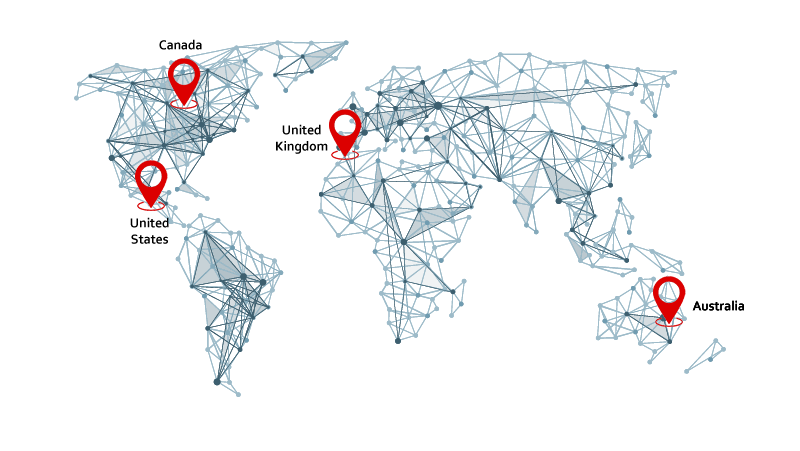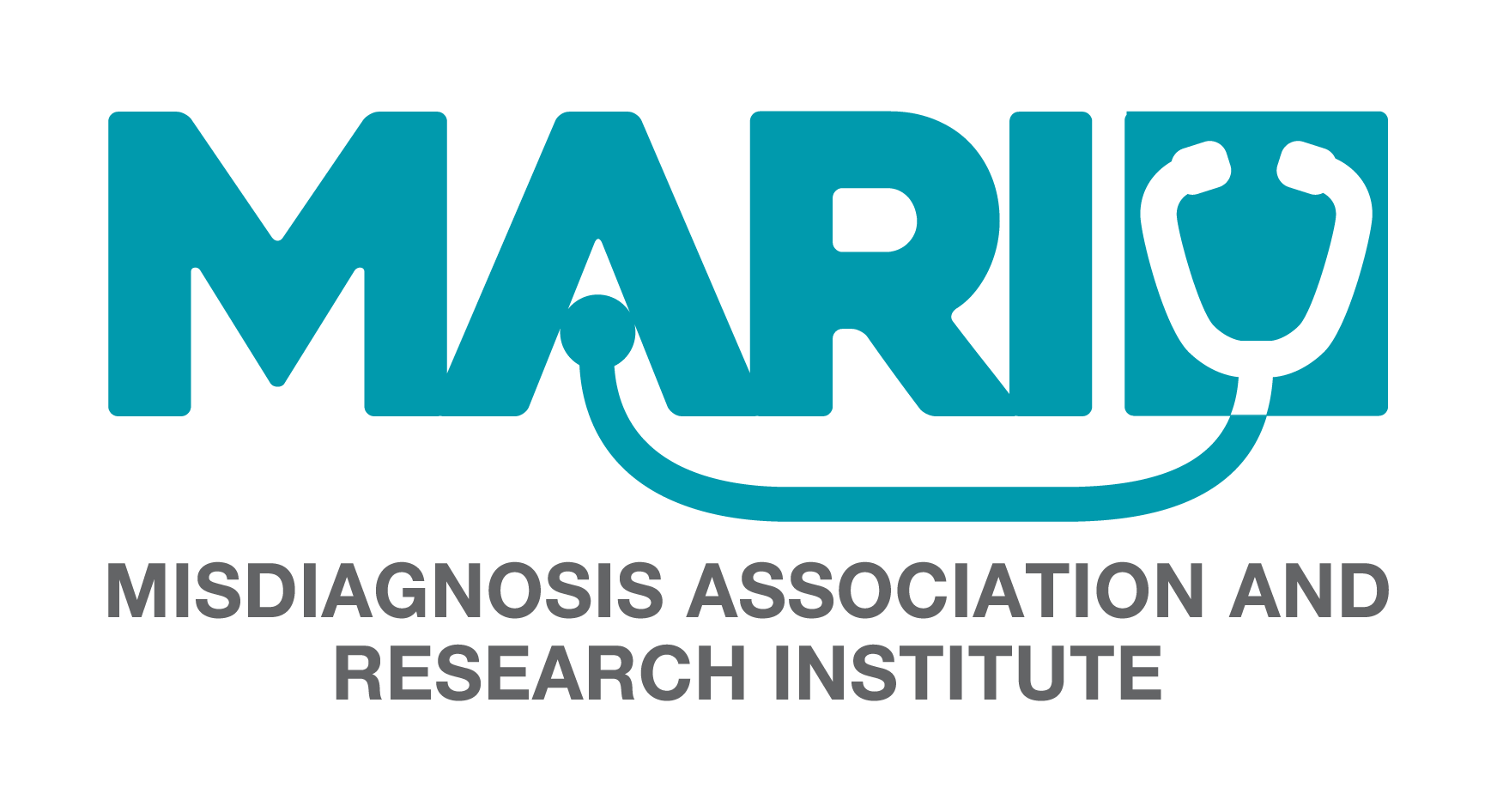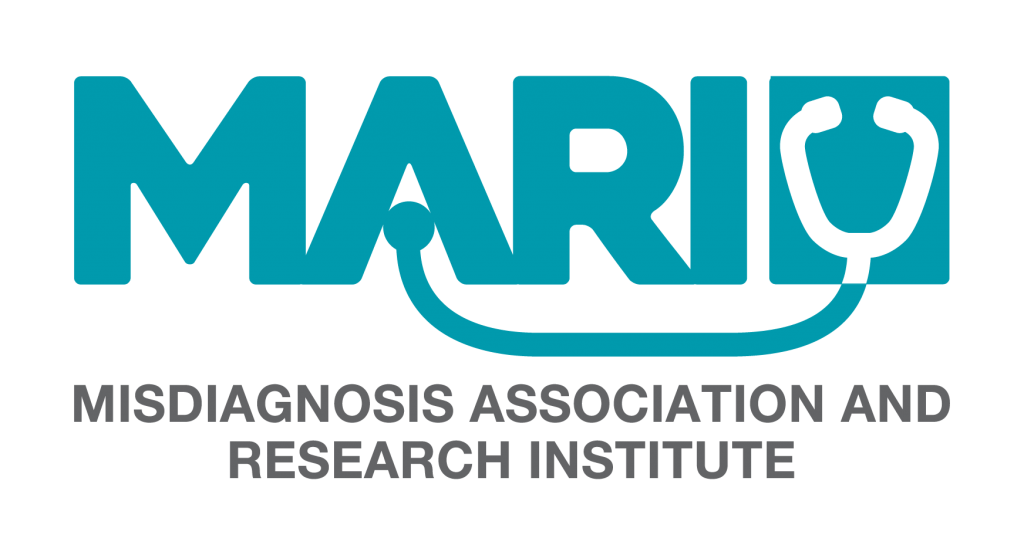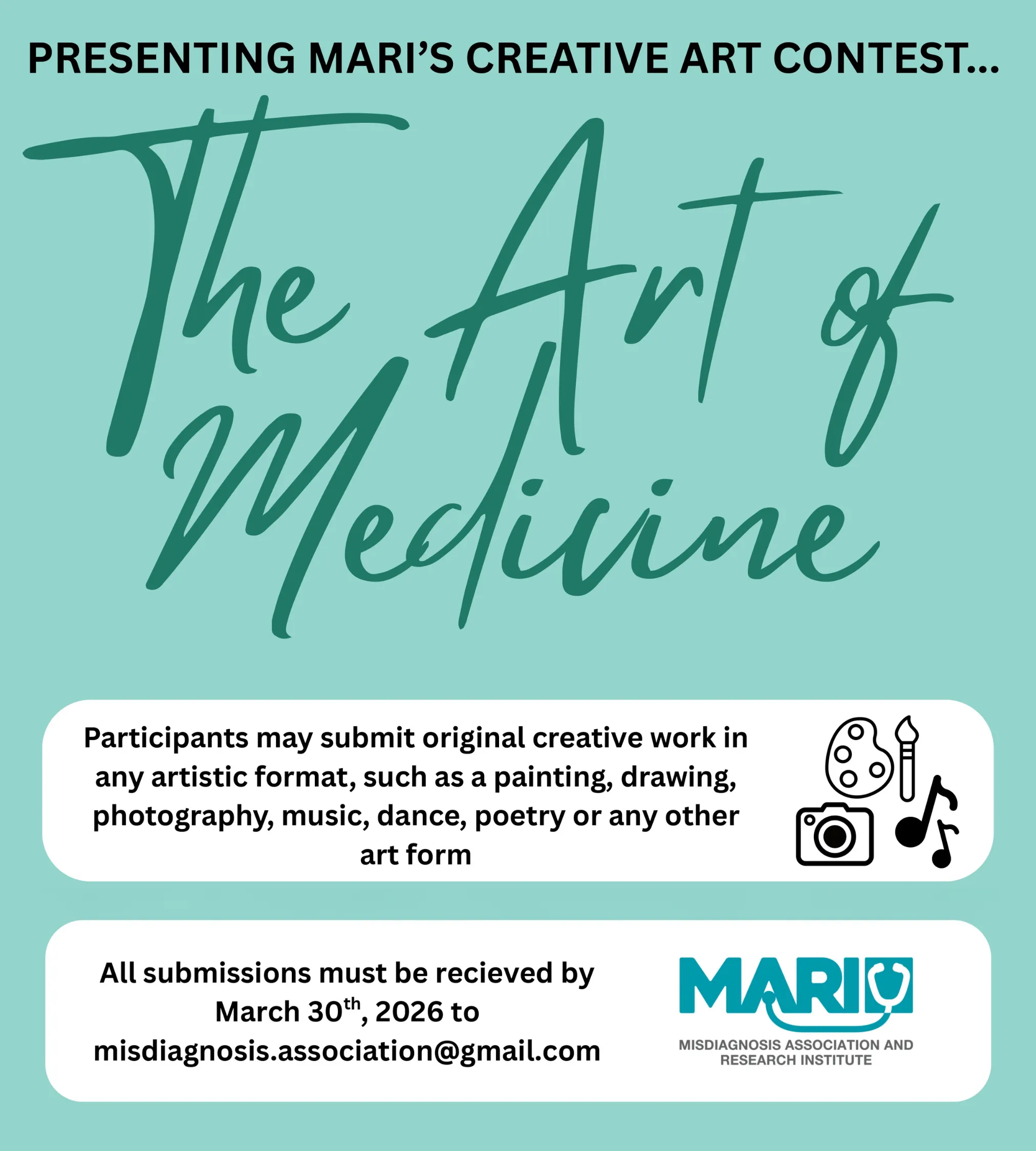
MARI on Map
Testimonial
What is MARI?
The Mismedicine Association and Research Institution (MARI) is the first and only organization in the world dedicated exclusively to addressing misdiagnosis, malpractice, errors in treatment, and medical errors, which altogether make up the term used here at MARI, Mismedicine. These issues often remain overlooked and hidden, yet they represent some of the most recurring challenges in healthcare. At MARI, we believe every patient deserves safe, accurate, and compassionate care, and we are committed to transforming medicine through research, education, and advocacy.
MARI is more than a research hub, it’s a movement. We have created a platform to bring together physicians, clinical educators, researchers, and students from around the world to challenge unspoken issues, identify systemic failures, and build evidence-based solutions. Our work in mismedicine, a framework developed in MARI to analyze preventable medical errors from a system-wide perspective, has positioned us as a leader in redefining healthcare safety, accountability and awareness through our research.
How does MARI Work?
MARI operates at the intersection of academic rigor, public impact, and interdisciplinary collaboration. Our approach is designed to shape not only research outcomes, but also the future leaders of healthcare.
Research and Impact
Here at MARI we pride ourselves on encouraging students to conduct consistent studies on misdiagnosis, treatment errors, systemic healthcare challenges and other topics students see as important. We recognize this can happen in many different fields, which is why MARI has 19 multidisciplinary branches.
We translate research into action through policy-informed initiatives, educational campaigns, and stakeholder partnerships. We also host webinars, workshops, and advocacy events to bridge the gap between science and patient impact.
Training, Interdisciplinary Collaboration & Mentorship
At MARI we have a team of over 620 members from different clinical and academic backgrounds. Creating a group of students and mentors that encourages interdisciplinary collaboration among students from medicine, pharmacy, dentistry, public health, nursing, nutrition, and related fields.
Students are given roles and tasks that are specifically tailored to their academic and professional interests, such as in medicine, law, policy, and health sciences, encouraging initiative and leadership.
Students develop portfolios that may include published articles, research briefs, conferences, health campaigns, and educational materials. Students are encouraged to propose new ideas and lead new projects within MARI.
Growth within MARI is performance-based. Student opportunities include but are not limited to, co-author academic papers, present at conferences, leadership roles and contribute to major reports.
Practical research and writing skills that are highly relevant for graduate school, clinical programs, and careers in healthcare. Gaining practical experience equips students with an edge that ensures they stand out in graduate school, medical school, and clinical placements.
The Future of Healthcare & Research
MARI is redefining what it means to do medical research by focusing on the future leaders of healthcare. We are building a future where errors are not hidden but studied, understood, and prevented, where patients’ voices and stories guide evidence-based changes and where students are empowered to become leaders in creating safer, more equitable healthcare systems.
Who founded MARI?
MARI was founded in 2010 by Dr. Pooya Khanmohammad Beigi, MD, a dermatologist and dermatologic surgeon. In addition to his clinical practice, Dr. Beigi is also a researcher and medical textbook author. His commitment to improving healthcare systems and advocating for patient well-being inspired him to establish MARI as the first organization dedicated to addressing medical errors across all areas of healthcare.
How does MARI’s involvement in veterinary medicine benefit pet owners?
Similar to human health care, MARI vet steps forward and takes action to improve the quality of life. MARI vet, a branch organization of MARI, works to reduce the transmission of animal-to-human diseases that can present considerable risks to both the health of the pets and their owners. MARI vet works by educating pet owners regarding the transmission of different pet diseases and ways to prevent this transmission.
Why was MARI established?
MARI was created out of the recognition that errors are an inevitable reality in medicine and healthcare, yet often remain underexplored or insufficiently addressed. The organization was founded to study, prevent, and raise awareness about all types of medical errors and to improve patient safety on a global scale.
Where is MARI based?
MARI’s headquarters are located in Beverly Hills, California, USA, but the organization operates internationally with branches in the United Kingdom, France, Germany, the United Arab Emirates, Hong Kong, and Australia, among other countries.
How fast is MARI growing?
MARI is experiencing rapid expansion, both in membership and the scope of its projects. Over 620 doctors, nurses, pharmacists, and university students from around the world have joined in recent years. Its growth is fueled by interdisciplinary collaboration, international partnerships, and the establishment of new branches across diverse specialties, including Environment, Nutrition, Dentistry, Law, and many more. This expansion allows MARI to address healthcare challenges across different cultural and systemic contexts, providing students and researchers with unique opportunities for global, cross-disciplinary learning.
How does someone join MARI?
Individuals interested in joining MARI can apply through the organization’s dedicated Human Resources Portal at mari.careers Opportunities are available for researchers, healthcare professionals, students, and volunteers who want to contribute to MARI’s mission.
How many subsidiaries does MARI have?
Currently, MARI has 20 subsidiaries, with new branches continuing to be added as the organization grows.
Why does MARI have subsidiaries?
MARI’s mission spans across all aspects of healthcare where errors may occur. Because medical errors are influenced by diverse fields ranging from clinical medicine and public health to technology and education, MARI has developed specialized subsidiaries. Each subsidiary focuses on a particular domain, allowing the organization to address the problem of medical errors from multiple perspectives in a comprehensive and effective way.
What kinds of professionals are involved with MARI?
MARI brings together a multidisciplinary team of physicians, surgeons, nurses, researchers, policy specialists, students, and volunteers from across the globe. This diversity ensures that healthcare errors are examined from clinical, scientific, cultural, and systemic perspectives.
What opportunities exist for students or young professionals?
MARI provides extensive opportunities for training, mentorship, and hands-on research through internships and volunteer programs. Students and early-career professionals can gain experience in interdisciplinary healthcare research, policy development, and patient advocacy.
What makes MARI’s research unique?
MARI’s research is distinguished by its holistic and interdisciplinary approach. Unlike traditional studies that focus on isolated aspects of healthcare errors, MARI examines the full spectrum of “Mismedicine,” including diagnostic, treatment, communication, administrative, ethical, and system-level factors. Its research integrates perspectives from multiple disciplines, such as medicine, pharmacy, public health, law, and nutrition, ensuring that findings are comprehensive, practical, and applicable across diverse healthcare contexts. Furthermore, MARI emphasizes actionable outcomes, translating research into community outreach, educational resources, and evidence-based interventions that directly improve patient care and system-level safety.
What does the term “Mismedicine” mean?
Mismedicine is a concept first developed by MARI to capture the wide spectrum of errors and gaps that can occur in healthcare, from mistakes in diagnosis, treatment, and medication to deeper issues such as fragmented systems and breakdowns in collaboration across disciplines. Rather than viewing these as isolated problems, mismedicine highlights how they are interconnected and often reinforced by the way health systems are organized. It serves as a framework for identifying where care goes wrong and for asking how research, education, and practice can be better aligned to prevent harm and improve outcomes. By naming and studying mismedicine, MARI provides a language to address both the everyday challenges faced by patients and the broader systemic issues that shape their care.
Is MARI only focused on misdiagnosis, or does it cover other issues too?
While misdiagnosis is a central focus, MARI’s work extends far beyond a single category of healthcare errors. The institute addresses a broad spectrum of patient safety challenges, including treatment errors, medication mistakes, communication breakdowns, systemic inefficiencies, administrative oversights, and legal or ethical lapses in care. By adopting the concept of “Mismedicine,” MARI captures the full range of preventable errors and gaps in healthcare delivery. This comprehensive approach allows the organization to analyze how diverse factors—clinical, technological, organizational, and social—interact to affect patient outcomes, ensuring a holistic understanding of safety across the healthcare continuum.
How does MARI approach healthcare from a holistic perspective?
MARI approaches healthcare from a holistic perspective by recognizing that health challenges are not isolated problems but are deeply influenced by psychological, social, cultural, and environmental contexts. Treating symptoms alone is not enough; meaningful solutions must address the underlying systems and barriers that shape people’s health. That is why MARI’s work moves beyond traditional clinical research to include the social determinants of health, patient experiences, and structural inequities. By looking at the whole person and the conditions around them, MARI produces knowledge and strategies that strengthen care, improve access, and promote long-term well-being.
This holistic vision is carried out through strong interdisciplinary collaboration. MARI brings together researchers and students from fields such as medicine, psychology, sociology, public health, and education to examine healthcare from multiple perspectives. Our many branches reflect this integrative approach, including MARI Environment, MARI Nutrition, MARI Dentistry, and MARI Law, with many more dedicated to advancing knowledge and practice across disciplines. Each branch offers a unique lens on healthcare, but together they create a comprehensive framework for developing solutions that are patient-centered, socially responsive, and broadly impactful.
How does MARI’s concept of “Mismedicine” connect to holistic models of health?
MARI’s concept of “Mismedicine” connects directly to holistic models of health by recognizing that health is influenced not only by clinical decisions but also by the broader systems in which care takes place. Mismedicine is a broad term that encompasses errors in diagnosis, treatment, and medications, as well as systemic issues such as fragmented communication, lack of interdisciplinary collaboration, and inequitable access to care. By framing these challenges under one concept, MARI highlights that health outcomes cannot be understood or improved by looking at isolated factors in medicine alone.
A holistic approach to health requires examining the whole picture: the patient, their environment, the care team, and the systems that govern healthcare delivery. Through the lens of mismedicine, MARI addresses gaps that occur when these elements fail to align, whether it is a missed diagnosis due to cultural misunderstanding, ineffective treatment caused by poor collaboration between disciplines, or social barriers that prevent patients from accessing the right care at the right time. By integrating insights from medicine, law, nutrition, environment, technology, robotics and many other fields, MARI works to reduce mismedicine and promote models of care that view patients not just through their symptoms, but as individuals shaped by interconnected biological, social, and systemic factors.
In what ways does MARI consider the social, cultural, and systemic factors that influence health?
MARI considers social, cultural, and systemic factors as central to understanding and addressing health challenges. Health outcomes are not determined solely by biology but are shaped by lived realities such as socioeconomic status, cultural norms, immigration experiences, and access to resources. By actively engaging with these contexts, MARI ensures that research does not overlook the barriers and inequities that patients face in their daily lives.
This perspective is embedded in MARI’s interdisciplinary work across its many branches. For example, MARI Environment explores the impact of environmental conditions on health, MARI Nutrition examines food access and dietary inequities, MARI Dentistry highlights gaps in oral health care across populations, and MARI Law investigates how legal and policy structures affect access to services. Together, these branches and others allow MARI to identify how systems either reinforce or dismantle inequities, and to design interventions that are both clinically effective and socially responsive.
How does MARI take an evolutionary perspective on healthcare errors?
MARI takes an evolutionary perspective on healthcare errors by recognizing that mistakes in medicine are not isolated incidents but part of a broader, adaptive process of learning and improvement. Just as evolution relies on variation and adaptation, MARI views healthcare errors as opportunities to identify weaknesses in systems, training, and communication, and then evolve practices to reduce harm in the future. For example, by studying past misdiagnoses or treatment failures across disciplines such as nutrition, law, dentistry, and environment, MARI is able to uncover patterns that point to systemic vulnerabilities rather than individual fault. This perspective shifts the focus from blame to progress, allowing healthcare to continuously adapt and improve in response to the challenges it faces.
How does MARI view the evolution of healthcare systems and their impact on patient safety?
MARI views the evolution of healthcare systems as a complex interplay of technological advancement, policy development, and clinical practice changes that can both improve and compromise patient safety. As systems become more sophisticated, new tools and protocols can reduce certain errors, yet they can also introduce unanticipated risks, such as workflow inefficiencies, communication breakdowns, or reliance on imperfect electronic health records and AI technologies. MARI analyzes these systemic shifts to identify patterns of vulnerabilities and resilience, emphasizing that patient safety is not solely dependent on individual clinicians but is embedded within the structure and evolution of the healthcare system itself. By studying historical trends and contemporary practices, MARI informs strategies to anticipate, mitigate, and prevent errors as healthcare systems continue to evolve.
What role does prevention play in MARI’s work compared to treatment?
At MARI, prevention is viewed as just as critical as treatment, if not more so, because preventing harm in the first place reduces the need for interventions later. While treatment focuses on addressing problems after they occur, prevention guides much of MARI’s research and outreach by identifying the systemic, educational, and clinical gaps that often lead to mismedicine. For example, training research assistants to recognize biases in study design, promoting health literacy through community programs, and encouraging interdisciplinary collaboration are all preventive measures that reduce the likelihood of errors and miscommunication down the line. In this way, MARI emphasizes prevention as a proactive strategy that strengthens healthcare systems, while treatment remains an essential response when prevention alone is not enough.
Does MARI collaborate with other organizations?
Yes. MARI partners with universities, hospitals, research centers, and health organizations worldwide to advance training, carry out interdisciplinary studies, and share strategies for reducing errors. These collaborations help translate research findings into practical solutions for both local communities and global healthcare systems.
How does MARI work with universities and healthcare organizations?
MARI collaborates closely with universities and healthcare organizations to bridge research, clinical practice, and education. Through these partnerships, MARI engages students, clinicians, and researchers in interdisciplinary projects that span diagnostic safety, treatment accuracy, and systemic healthcare improvements. Universities provide an academic framework for evidence-based investigation, while hospitals and clinics offer real-world contexts where research findings can be applied, tested, and refined. These collaborations often include joint studies, training workshops, and knowledge translation initiatives that ensure discoveries are not only published but also actively inform clinical practice and policy. By fostering these connections, MARI amplifies the impact of its research, creating a feedback loop that strengthens patient safety and professional development simultaneously.
How does MARI translate research into real-world impact?
MARI actively bridges the gap between research and practice by implementing evidence-informed strategies that influence healthcare delivery, policy, and education. Findings from MARI’s studies are disseminated through multiple channels, including clinical guidelines, educational workshops, multilingual health materials, webinars, and community-based programs. In addition, MARI partners with hospitals, clinics, and public health organizations to integrate research insights into everyday clinical workflows. This translation process ensures that discoveries do not remain academic exercises but instead directly improve patient safety, clinician training, and system-level practices.
What kind of outreach does MARI do in communities?
MARI engages in a variety of community outreach initiatives aimed at promoting health literacy, patient empowerment, and preventive care. These initiatives include educational workshops, webinars, public health campaigns, and the creation of accessible multimedia materials to communicate research findings. MARI also collaborates with schools, advocacy groups, and local health organizations to address specific community needs, tailoring content to different cultural, linguistic, and socioeconomic contexts. By actively involving communities in knowledge dissemination, MARI not only raises awareness about healthcare errors but also equips patients with practical tools to advocate for safer, more effective care.
What role does advocacy play in MARI’s mission?
Advocacy is central to MARI’s mission, bridging the gap between research findings and real-world improvements in patient safety. By actively communicating insights on diagnostic errors, treatment failures, and systemic shortcomings to policymakers, healthcare organizations, and the public, MARI ensures that research leads to actionable change. The institute promotes patient-centered policies, equity in care, and professional accountability, advocating for systemic solutions that prevent harm before it occurs. Through educational articles, campaigns, workshops, and collaboration with community and clinical stakeholders, MARI empowers both healthcare providers and patients to participate in shaping safer, more effective healthcare systems.
What does MARI hope to change in healthcare globally?
Globally, MARI aims to transform healthcare systems by fostering a culture that prioritizes safety, accountability, and learning from errors. The institute seeks to reduce preventable harm by standardizing practices that improve diagnostic accuracy, treatment efficacy, and communication across all levels of care. MARI also works to integrate the concept of “Mismedicine” into professional training, encouraging clinicians and institutions to recognize and address errors proactively. Ultimately, the goal is to create healthcare systems that are not only technically competent but also responsive to social, cultural, and systemic factors, ensuring equitable, patient-centered care worldwide.



